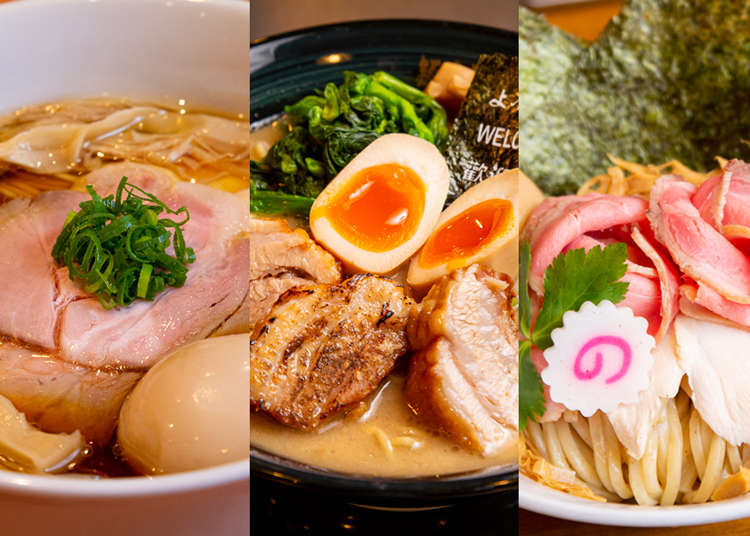
Also known as the proving grounds of ramen, Ikebukuro station is flanked east and west by over a hundred different ramen restaurants, on top of a plethora of soup bases like miso, shoyu, tonkotsu, shio and tantanmen.
This time around, we’ll be introducing 3 exceedingly prolific ramen eateries popular with not just the students and salarymen passing through Ikebukuro, but the ramen fanatics as well.
1. Hayashida: Packed to the brim with rich chicken flavors
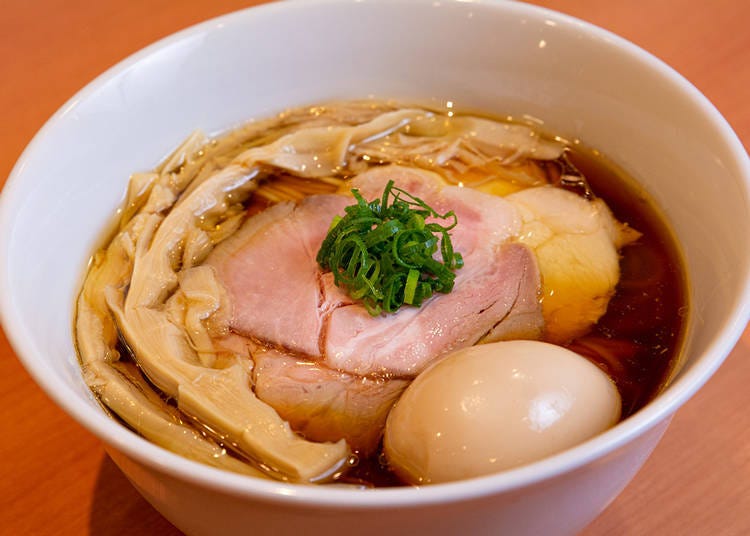
First opening their doors in 2018, the lively shop’s signature dish, the “Deluxe Shoyu Ramen” (1000-yen tax inclusive) is made with a mellow soup base utilizing generous amounts of duck and brand chicken called “Oyama chicken”, with the secret to its flavor a result of carefully boiling the ingredients for 7 to 8 hours.
The duck extracts also contribute to the rich flavor. When sizzled, the rich taste of duck and chicken, with its heavy yet clean aftertaste, spreads in your mouth. On top of that, the shoyu compliments the soup well enough to make the dish complete.
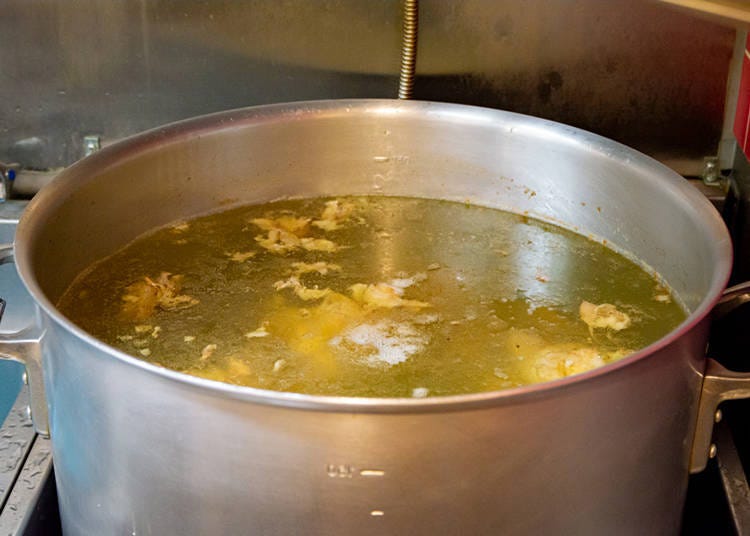
When the bowl of ramen arrives, you’re greeted with a golden layer of chicken oil skimming the surface of the soup. The extra flavor from this goes well with noodles, making it a synergistic combination of chicken and duck.
The owner Mr. Takai tells us, “The punchy flavor is thanks to the duck extract too. Please enjoy this bowl of ramen that masterfully weaves the ingredients together.” Clearly the duck plays a big role in the finishing touches of the dish.

The noodles are of the straight kind, which slides down the throat smoothly. They’re also made from a variety of different wheat flour with an exquisitely balanced composition, bringing forth a bite that doesn’t lose to its other qualities.
Even the ingredients are carefully prepared, with two varieties of chashu atop the noodles: pork shoulder roast and chicken breast meat, prepared tenderly over low heat. As if having two choices wasn’t good enough, the more you chew them, the more the flavorful juices gush forth.

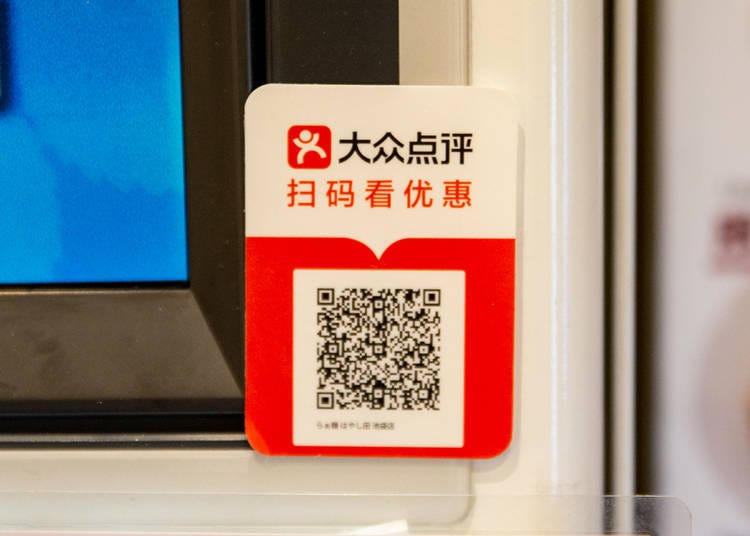
For the toppings, the Hosaki boiled bamboo shoots they use are supposedly 3 times more than regular bamboo shoots, crisp and juicy enough to bring out another level of flavor in the ramen, which goes another step further once you add the slightly sweet yet concentrated soft-boiled egg.
Other than the soup kind, the restaurant also sells tsukemen and even has a seasonal menu. The ticket machine also has explanations in Mandarin, a sure boon to the Chinese tourist.
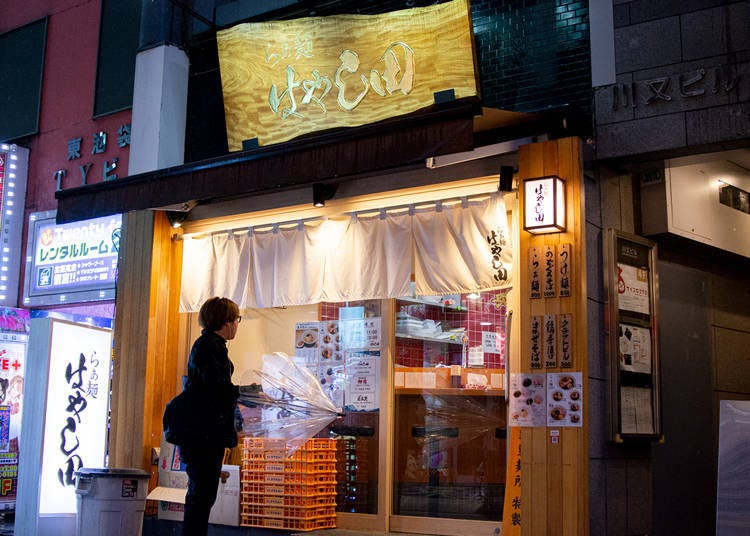
-
Ramen Hayashida Ikebukuroらぁ麺 はやし田 池袋店
- Address 1-40-10 Ikebukuro, Toshima-ku, Tokyo 170-0014
-
Nearest Station
4-minute walk away from the JR Yamanote Line Ikebukuro Station’s East Exit
- Phone Number 03-6907-2260
Hours: 11:00 - 23:00
Open Daily
2. Mutekiya: The pinnacle of tonkotsu shoyu ramen with snaking queues
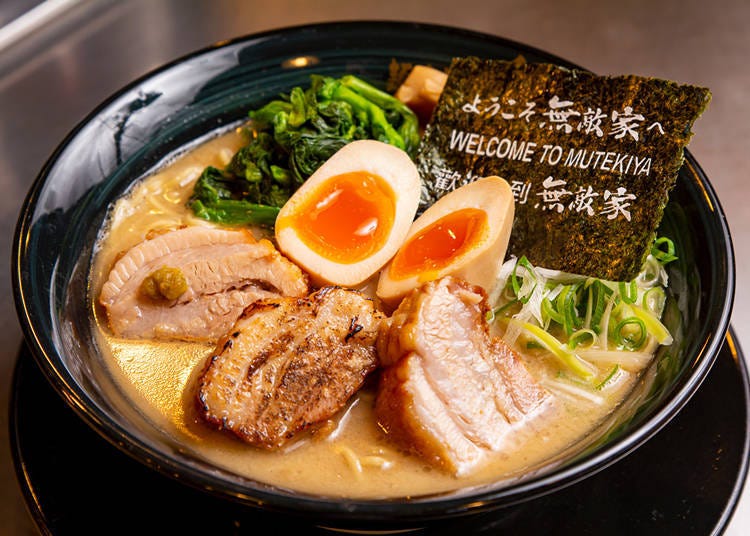
Known in the area for its long queues, Mutekiya’s opening in 1994 marked the start of its operations, preparing in a giant vat rich tonkotsu soup for 13 hours daily, made from pork knuckles and spine. This results in a deep and thick flavor yet sharp, giving its signature blend the moniker “ton-koku” shoyu ramen.

The store closes once they run out of soup, but in order not to disappoint their customers they make 3 batches of soup from morning to night, painstakingly taking out the scum regularly to produce a flavor of quality.

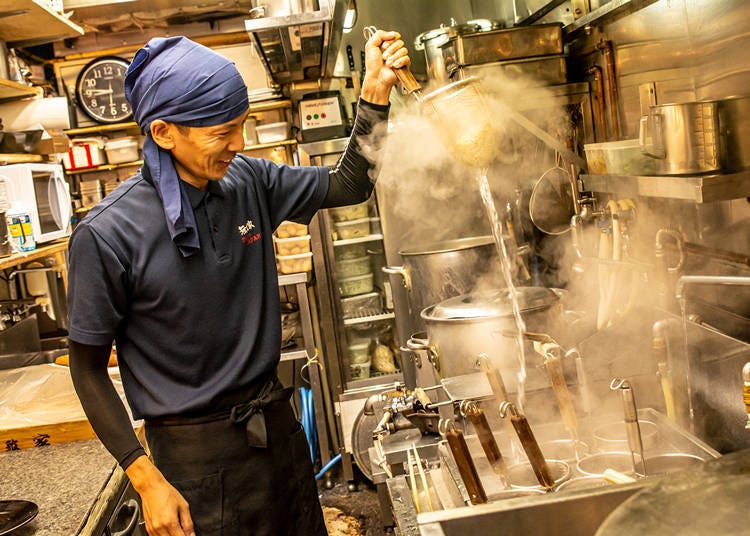
Their most popular item on the menu is their Mutekiya nikutama ramen (1200-yen, tax inclusive), which includes a thick slice of chashu, seasoned egg and cabbage. Other than tonkotsu, you can opt for a fish-based stock atop of ripened shoyu to get a singular, unified concentration of flavor which smoothly spreads in your mouth.
The noodles are straight and semi-thick, made from the “Haruyokoi” brand of rare wheat which are limited in harvest. This results in a rich and compact taste that completes the flavor.
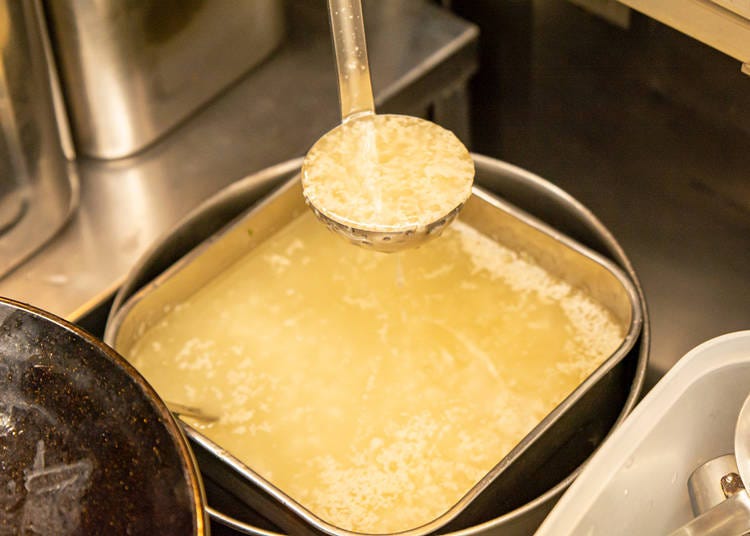
Slurping these noodles only adds on to the rich umami. Using lard from Japanese brand pork of the highest quality, the soup’s thick yet succinct flavor stands out even more.
The key man in the kitchen, Suehira tells us, “We prepare about 150kg of tonkotsu daily over 3 times to ensure we have a fresh batch as much as possible. What seals the deal for the soup is the sei abura we use, made from high quality ingredients that acts as the catalyst for unifying the flavors.”

The thick cuts of tender chashu is also another specialty, as Suehira explains. “We constantly make sure to prepare fresh batches, and to ensure that customers don’t get tired of the flavor, we give 3 different slices: one soft, one scorched, and one garnished with yuzu pepper.”
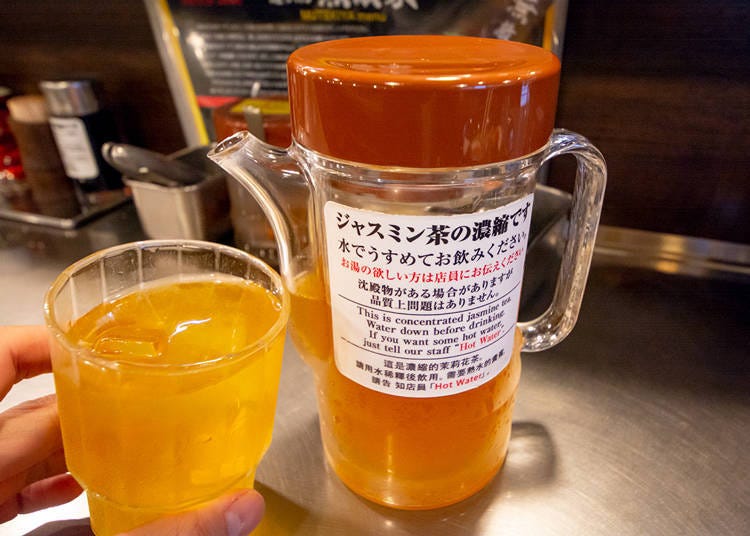
The establishment is visited by foreign tourists daily, so menus are available in English, French, Mandarin, Korean, and even Thai. They also provide complimentary jasmine tea along with plain water, an example of the “omotenashi” service the Japanese pride themselves in.
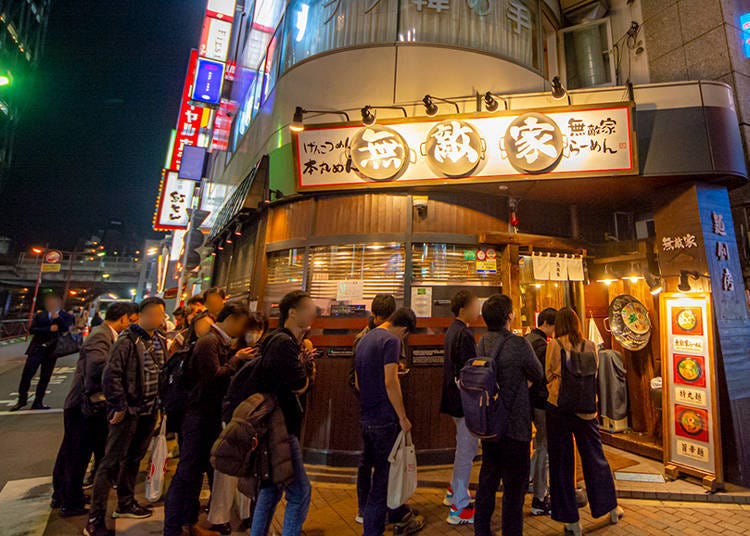
-
Mutekiya麺創房 無敵家
- Address 1-17-1 Ikebukuro, Toshima-ku, Tokyo 170-0014
-
Nearest Station
5-minute walk away from the JR Yamanote Line Ikebukuro Station’s East Exit
- Phone Number 03-3982-7656
Hours: 10:30 - around 04:00
Open Daily
3. Mamiana: The best tsukemen in the East (exit)
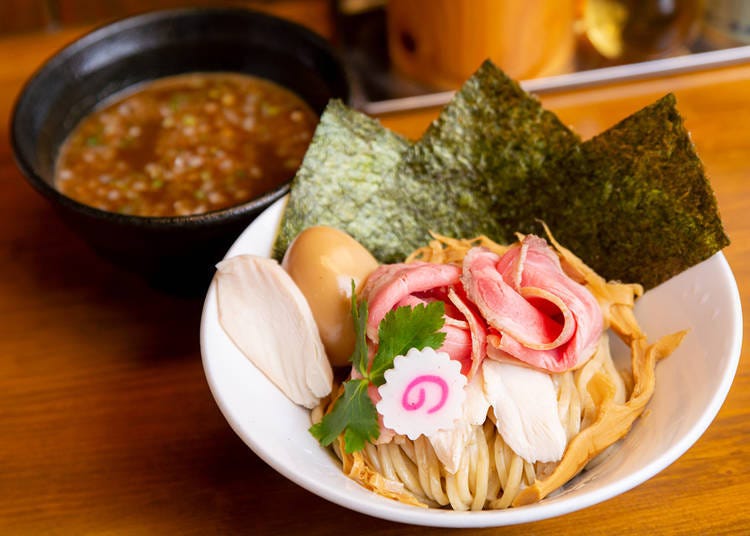
With an undefeated 16 years of being the best in the East exit vicinity, “Chisoumen Mamiana” is the poster child of tsukemen in the area. Their most popular item is their “Deluxe Tsukemen” (1050-yen, tax inclusive), with uber-rich seafood-based dipping broth, and while they do offer alternatives like chuuka soba and mazesoba, their tsukemen is definitely the recommendation for first timers.

Savory and syrupy, the broth generously uses seafood and vegetable extract, boiled for 9 hours in a condensed blend of dried shrimp, bonito flakes, and dried sardines. Pulling out as much of the flavor as possible without the bitter aftertaste is a result of preparation with the right timing. As the finishing touch, finely diced onions are added to the broth, the crunchiness adding an extra accent to the final product.
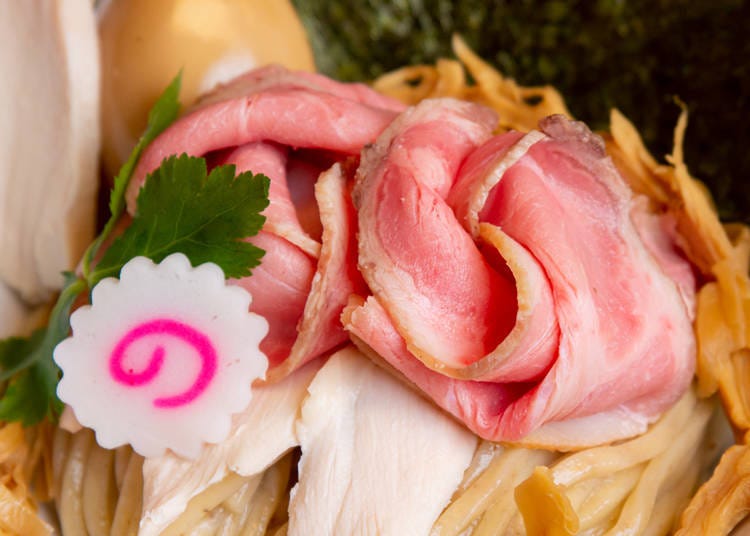
The noodles used are semi-thick noodles, the kind that goes down well with a slurp. Exquisitely made, chewing it releases the fragrant aroma of wheat. Dipping it in the broth results in a splendid marriage of a smooth yet impactful texture.

Instead of the usual chashu, the establishment uses roast pork with a hint of rareness, made from Hokkaido premium pork. Not only that, the bowl also comes with chicken chashu, Hosaki menma, honeywort, nori, and the staple of Japanese ramen: the naruto fishcake, making for a vivid display of ingredients. Each ingredient stands out moderately against each other, and any customer is sure to continue eating their meal without ever feeling tired of it.
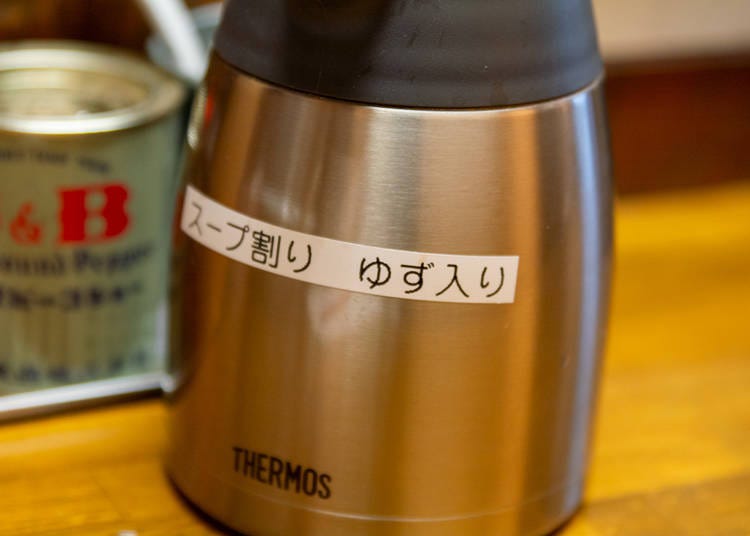
The shopkeeper Nakamura Junji informs us of a little secret. “Actually, even after you finish the tsukemen, there’s a way to continue enjoying the meal. On top of every table there’s a flask of diluted soup that has yuzu added in. Try pouring this into the remaining broth that’s left after you’re done with the noodles.”

The usual way of enjoying this seems to go somewhat like this: first, take each tangle of noodles and dip them in the broth. Add a pinch of pepper or vinegar as you like to accentuate the flavors. Finally, after you’re done with the noodles, pour the soup from the flask into the leftover broth and chug it down.
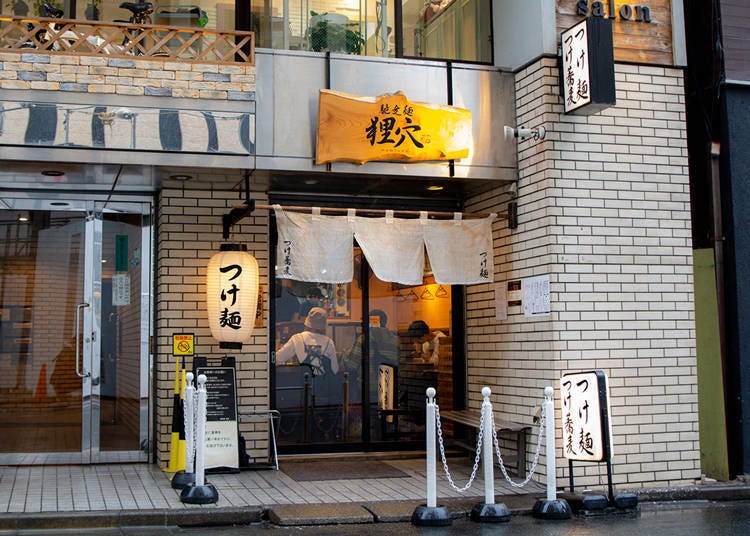
-
Mamiana馳走麺 狸穴
- Address 1-32-2 Ikebukuro, Toshima-ku, Tokyo 170-0014
-
Nearest Station
4-minute walk away from the JR Yamanote Line Ikebukuro Station’s East Exit
- Phone Number 03-3982-4055
Hours: 11:00 - 22:00
Open Daily
*Prices and options mentioned are subject to change.
*Unless stated otherwise, all prices include tax.
Popular Tours & Activitiess
Recommended places for you
-

A Travel Game Changer! Go Hands-Free Between Tokyo and Kyoto with LUGGAGE EXPRESS by JTB and JR Tokai
by: Guest Contributor
-

2025 Japan Autumn Color Report: Tokyo's Ginkgo Trees Starting to Glow
by: Timothy Sullivan
-

See Asakusa and Tokyo Skytree® in a New Light at the "Také Akari" Festival (Winter 2025-2026)
by: Guest Contributor
-
Ad
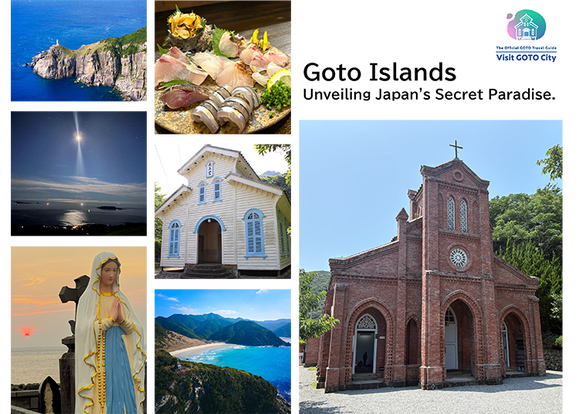
Walk in the Footsteps of Believers: A 4-Day Pilgrimage Across Goto Islands, Nagasaki Prefecture
by: Yohei Kato
-

Enjoy Japan's Gorgeous Winter Lights! Ride the Romancecar to Shonan no Hoseki Illumination
by: Guest Contributor
-

2025 Autumn Colors Report: Kurobe Gorge Nearing Peak
by: Timothy Sullivan
Inspiration for Accommodations
-

Enjoy Mt. Fuji from the Comfort of Your Room! Recommended Ryokan with Mt. Fuji View
-

Stay Near the Cherry Blossoms! Hotels for Cherry Blossom Viewing in Tokyo
-

Family-Friendly Hotels with Free Shuttle to Disneyland: Convenient Access for a Magical Stay
-

Top Ranked Hakone Hotels with Mt. Fuji View: Enjoy Stunning Scenery from Your Private Space
-

Convenient Tokyo Hotels with Airport Shuttle: Ideal for Families and Heavy Luggage
-

Stunning Tokyo Tower View Hotels: Enjoy Spectacular Scenery from Your Private Space
-

Convenient Asakusa Hotels with Kitchens: Ideal for Extended Family Visits
-

Experience Luxury: Hakone's 10 Best Five-Star Accommodations
-

Enjoy Mt. Fuji Autumn Leaves! Top Hotels Near the Popular Autumn Leaves Corridor
-

Experience Hakone Fall Foliage from Your Room with Stunning Views
-

Exploring Tokyo Station: 11 Must-Visit Spots Around the Heart of Tokyo
-

8 Unfamiliar (But Totally Normal) Customs in Japan!
-

Only Sold in Autumn/Winter?! Yukimi Daifuku: Uncovering Japan's Super-Popular Mochi Ice Cream Dessert
by: Miyu Shimada
-

[MOVIE] Super Ukiyo-e – Cracking the Edo Code with Digital Art
by: Pamela Drobig
-

New KitKat 'Ruby' debuts in Japan - Naturally PINK Chocolate!
-

6 Fun Things to Do at Tokyo's World-Famous Tsukiji Outer Market!
- #best ramen tokyo
- #what to buy in ameyoko
- #what to bring to japan
- #new years in tokyo
- #best izakaya shinjuku
- #things to do tokyo
- #japanese nail trends
- #what to do in odaiba
- #onsen tattoo friendly tokyo
- #daiso
- #best sushi ginza
- #japanese convenience store snacks
- #best yakiniku shibuya
- #japanese fashion culture
- #best japanese soft drinks


















